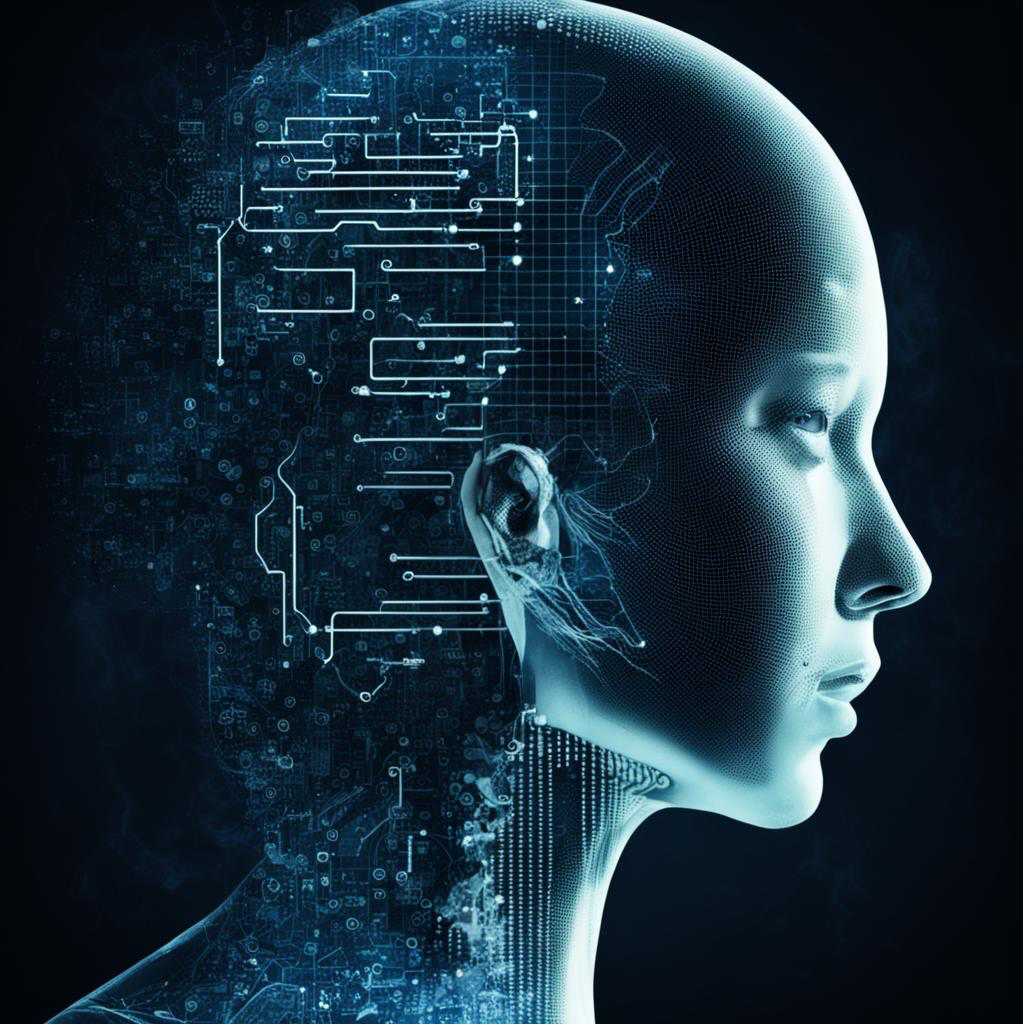Welcome to the exciting world of emotional intelligence! In a rapidly evolving society, it’s becoming increasingly clear that academic achievements alone are not enough to succeed. Emotional intelligence, or EQ, plays a crucial role in our personal and professional lives. It encompasses our ability to recognize and manage our emotions effectively, understand others’ feelings, communicate empathetically, and develop meaningful relationships.
But how can we enhance our emotional intelligence? That’s where artificial intelligence (AI) comes into play. With advancements in technology, AI is revolutionizing the way we approach emotional intelligence development programs. By leveraging cutting-edge algorithms and machine learning capabilities, AI offers unique opportunities for individuals to cultivate their EQ skills on an unprecedented scale.
We will explore the role of AI in emotional intelligence training programs. We’ll delve into its benefits as well as real-life examples of how AI integration is transforming these programs. Additionally, we’ll discuss potential challenges and ethical considerations associated with this emerging trend. So buckle up and get ready for a captivating journey through the intersection of emotion and technology!
The Role of AI in Emotional Intelligence Development Programs
Artificial intelligence (AI) has revolutionized many industries, and its impact on emotional intelligence development programs cannot be overlooked. By harnessing the power of AI, these programs can now offer personalized and dynamic learning experiences that were previously unimaginable.
One of the key roles that AI plays in emotional intelligence development is in assessment. Traditional assessments often rely on self-reporting or observations, which are subjective and prone to biases. With AI, however, sophisticated algorithms analyze data from multiple sources to provide more accurate insights into an individual’s emotional strengths and weaknesses.
AI also enables adaptive learning platforms. These platforms use machine learning algorithms to identify patterns in learners’ behavior and tailor the content accordingly. This ensures that each participant receives targeted training based on their specific needs, allowing for a more effective learning experience.
AI-powered virtual coaches have emerged as valuable tools in emotional intelligence training. Through natural language processing and facial recognition technologies, these virtual coaches can simulate realistic scenarios where individuals practice managing their emotions effectively. The feedback provided by the virtual coach helps participants understand how their responses impact others and guides them towards better outcomes.
Another area where AI shines is sentiment analysis. By analyzing written text or spoken words using natural language processing algorithms, AI can detect underlying emotions accurately—even those that might be subtle or nuanced—providing valuable insights for learners to reflect upon.
The role of AI in emotional intelligence development programs goes beyond just enhancing efficiency; it offers new possibilities for growth and personalization. As technology continues to advance at a rapid pace, we can expect even greater integration of AI into these programs—a promising future where individuals will have access to cutting-edge tools for developing their emotional skills.

Benefits of Using AI in Emotional Intelligence Training
AI technology has revolutionized many industries, and now it is making its mark on emotional intelligence training as well. Incorporating AI into these programs brings a plethora of benefits that can greatly enhance personal growth and development.
One key advantage is the personalized approach that AI enables. Traditional emotional intelligence training often follows a one-size-fits-all model, but with AI, individuals can receive tailored guidance based on their unique needs and strengths. Through data analysis and machine learning algorithms, AI systems can identify patterns in behavior and emotions to provide targeted insights and suggestions for improvement.
Another benefit is the accessibility of AI-powered emotional intelligence programs. With advancements in technology, such as smartphone apps or online platforms, individuals can access these resources anytime and anywhere. This convenience allows for continuous learning and practice, fostering long-term habit formation.
Furthermore, using AI in emotional intelligence training introduces an objective perspective to the process. Emotions are subjective experiences that vary from person to person, making it challenging to gauge progress accurately. However, by leveraging machine learning algorithms that analyze facial expressions or vocal tones, AI systems can provide unbiased feedback based on measurable indicators.
Real-life Examples of AI Integration in Emotional Intelligence Programs
One real-life example of how AI is being integrated into emotional intelligence programs is through the use of chatbots. These virtual assistants are programmed to have conversations with individuals and provide them with guidance on managing their emotions. The chatbot analyzes the user’s input, detects patterns, and offers personalized suggestions for coping strategies or solutions.
Another example is the development of emotion recognition software that uses facial analysis algorithms to detect and interpret people’s emotions based on their expressions. This technology can be used in various scenarios, such as job interviews or customer service interactions, where understanding and responding appropriately to others’ emotions is crucial.
AI-powered virtual reality (VR) environments are also being utilized in emotional intelligence training. These simulations allow users to practice dealing with emotionally challenging situations in a safe and controlled environment. Through interactive scenarios, individuals can develop skills like empathy, active listening, and conflict resolution.
AI has been incorporated into mobile applications that provide feedback on users’ emotional states throughout the day. By tracking factors like heart rate variability or voice tone patterns, these apps offer insights into how an individual’s emotions fluctuate over time and suggest activities or techniques to improve well-being.
Potential Drawbacks and Challenges
While the integration of AI in emotional intelligence development programs is undoubtedly beneficial, it is crucial to also consider the potential drawbacks and challenges that may arise. One significant concern is the risk of over-reliance on AI technology. Emotions are complex and nuanced, and solely relying on AI algorithms to analyze and interpret them may oversimplify human experiences.
Another challenge lies in ensuring the accuracy and reliability of AI systems. Machine learning models are trained based on existing data, which means they can be influenced by biases present in that data. If these biases go undetected or unaddressed, it could lead to inaccurate assessments of emotional states or reinforce existing societal biases.
Privacy concerns come into play when using AI for emotional intelligence training. As personal information is collected and analyzed by these systems, individuals must have confidence that their data will be handled securely and used responsibly.
There’s a risk of dehumanization when relying too heavily on AI technologies for emotional intelligence development. Human connection plays a vital role in understanding emotions empathetically, so striking a balance between technology-driven analysis and genuine human interaction becomes crucial.
While integrating AI into emotional intelligence development programs brings numerous benefits such as increased accessibility and efficiency, we must remain mindful of its limitations.
Ethical Considerations
When it comes to integrating AI in emotional intelligence development programs, there are several ethical considerations that need to be addressed. One of the main concerns is privacy and data protection. As AI technologies gather large amounts of personal data, it is crucial to ensure that this information is securely stored and used only for its intended purpose.
Transparency is another important ethical consideration. Users should have a clear understanding of how their data is being collected, analyzed, and utilized by AI systems. Organizations must provide transparent explanations of the algorithms and methods used so individuals can make informed decisions about their participation in these programs.
Bias in AI systems also poses an ethical challenge. If not carefully designed and monitored, AI algorithms can unintentionally perpetuate biases present in society, leading to unfair treatment or discrimination based on factors like race or gender. It’s essential to regularly evaluate and mitigate any bias within the technology.
Accountability plays a significant role in ensuring ethical use of AI in emotional intelligence training. Organizations must take responsibility for any potential harm caused by AI systems through proper monitoring and oversight.
Inclusivity should be prioritized when developing these programs with AI integration. Efforts should be made to ensure that everyone has equal access to these tools regardless of socioeconomic status or other barriers.
Conclusion
In this ever-evolving world, the importance of emotional intelligence cannot be overstated. It plays a crucial role in our personal and professional lives, shaping how we interact with others and navigate through challenges. With the advent of artificial intelligence, there is now an exciting opportunity to enhance and develop emotional intelligence on a whole new level.
AI has revolutionized the field of emotional intelligence by providing innovative solutions that were once unimaginable. Through machine learning algorithms and advanced data analysis, AI-powered programs can accurately assess individuals’ emotions and provide personalized feedback for improvement. This technology enables us to gain deeper insights into our own emotions, understand others better, and ultimately strengthen our interpersonal relationships.
The benefits of incorporating AI into emotional intelligence development programs are plentiful. These intelligent systems offer round-the-clock accessibility, allowing users to practice whenever it suits them best. Additionally, AI can create realistic simulations that mimic real-life scenarios, enabling individuals to hone their skills in a safe environment before applying them in the real world.
As we embrace the power of artificial intelligence within this context, ethical considerations must guide its application responsibly. Developers must ensure transparency regarding data usage while taking measures to protect individual privacy rights adequately.


